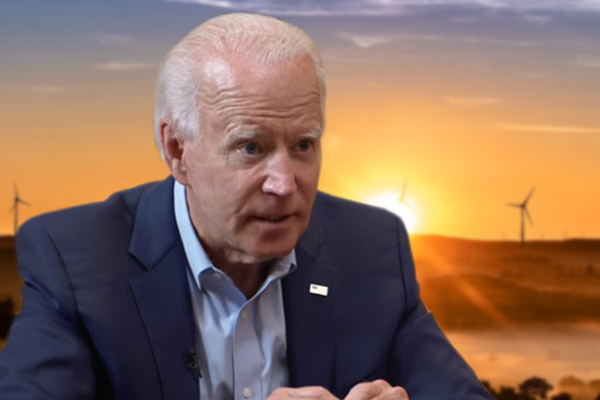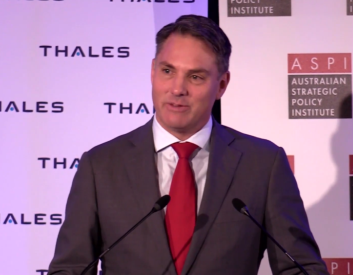Australia’s oil policy and unwillingness to abide by IEA regulations is leaving us vulnerable to shocks provided by an unstable industry, writes Tim Cornwall.
THE AUSTRALIAN GOVERNMENT’S neoliberal ideology has made our supply chains insecure and leaves us vulnerable to the inevitable crises that occur across time. This has become evident throughout the world as the coronavirus crisis has hit. While Australia’s public health response has so far been better than most, we are still left vulnerable by the Government’s energy policy both now and looking into the future.
Recently, there has been a story of the massive price dive of oil. Demand has taken a hit with varying coronavirus lockdowns taking place around the world. Supply has not only been maintained but has increased with a falling out in negotiations between the Saudi-led Organisation of the Petroleum Exporting Countries (OPEC) and Russia. This combination of increased supply and decreased demand has seen prices plummet, putting the whole industry on the brink.
As we know, the Middle East is the biggest oil-producing region on Earth and, in part due to that very fact, is also the most war-torn and unstable. Given the instability of the production of oil, the International Energy Agency (IEA) requires its members, Australia included, to maintain local oil reserves equivalent to 90 days’ demand to provide a buffer against the inevitable shocks. A Band-Aid fix to the bigger problems of U.S. imperialism and an oil-reliant world but a crucial measure, nonetheless.
According to the IEA, Australia has only 55 days’ worth of oil reserved in case of these market shocks. We are the only country with such dismal figures. The only other country not to meet this requirement is New Zealand, who is only two days short with 88 days’ worth. This means that, should we experience massive oil price hikes or ceasing of supply altogether, we would be left compromised and dependent on our allies to get the oil that we need to power our industrialised society.
Energy Minister Angus Taylor justifies these figures through a clever accounting trick. Instead of going by the IEA regulations, they count oil in overseas reserves in other IEA-member countries and oil on transit to Australia. Counting these barrels, Australia has around 80 days’ worth — still ten days below our obligations. With this in mind, the Coalition used the recent oil price dive to shore up our reserves by spending almost $100 million on oil to be reserved in the United States. There are two sets of problems with this.
First is the fact that America, despite their tight leash on our politicians and media, is a long way from Australia. In the event of global shocks, the oil could take weeks to get to Australia. In the event of war in the Pacific, the oil may be unable to get to Australia at all. And should the world get even more turbulent than it already is, the current United States administration is known to leave their allies out to dry as their interests change.
Second is the amount of oil that was bought. Despite the flashy “$100 million” headline for the media to heap praise on their godsend, Prime Minister Scott Morrison, this only buys Australia about five days’ worth of oil. If you accept the sneaky accounting trick, this brings us 50 per cent of the way towards our commitments. If instead, you respect the IEA regulations, even if this oil was being stored in Australia, it would only bring us from 55 days to 60 days — still a whole month short of security.
There are two ways to combat this shortage. The first is to increase the reserves to the recommended number of 90 days’ use. This is as simple as building oil reserves in Australia and maintaining them and was Labor’s policy going into the 2019 Election. The second method of combating this shortage is to reduce our demand for oil. This would require stimulating the electric vehicle and renewable energy industries and potentially paving the way to becoming a renewable technologies superpower. The latter is clearly the more visionary, long-term option.
For the time being, however, Australia is left vulnerable in a turbulent world. The U.S. is struggling with the COVID-19 crisis and Donald Trump’s approval ratings have been erratic at best ahead of the general election in November. Trump has shown that he is unafraid to spark tensions in Iran for political gain and this could be seen as necessary in the lead-up to the 2020 Election.
Iran’s own politics are becoming increasingly militarised with Mohammad Bagher Ghalibaf, a former Iranian Revolutionary Guard Corps leader, increasing his power base. An increasingly militarised Iran would only make Saudi Arabia more nervous about minority Shiite uprisings around their oil fields, in addition to attacks from Iran-backed Houthi rebels in the U.S.-sponsored civil war that plagues Yemen.
These are all conditions which can be observed and analysed in their likelihoods. There are countless other external events that are far more difficult to see coming, but which provide the market with similar volatility. The coronavirus crisis is just one example of such an unforeseen threat.
National and economic security, in whatever industry, is an important thing. Neoliberalism, as it exists in the West today, is far too focused on the short-term profits of corporations to give any country that security. Hopefully, we realise this before we are unnecessarily condemned to fight a war on the basis of imperial dependency.
Tim Cornwall is a writer and video creator with interests in politics, media bias, technology and philosophy. You can follow Tim on Twitter @tijaco_
 This work is licensed under a Creative Commons Attribution-NonCommercial-NoDerivs 3.0 Australia License
This work is licensed under a Creative Commons Attribution-NonCommercial-NoDerivs 3.0 Australia License
Support independent journalism Subscribe to IA.












